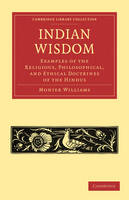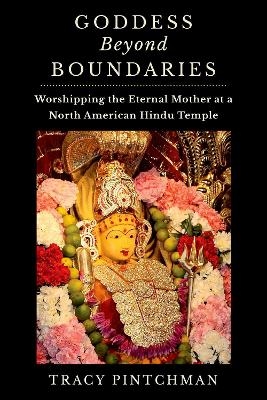
Indian Wisdom
Examples of the Religious, Philosophical, and Ethical Doctrines of the Hindus
Seiten
2010
Cambridge University Press (Verlag)
978-1-108-00795-5 (ISBN)
Cambridge University Press (Verlag)
978-1-108-00795-5 (ISBN)
Indian Wisdom, first published in 1875, reflects the growing interest of Victorian Britain in South Asian culture and literature. Monier Williams, Professor of Sanskrit at Oxford, describes Hindu philosophy, customs and law. He also outlines the character and content of Sanskrit literature, which he compares with the poetry of Homer.
First published in 1875, this book reflects a growing nineteenth-century British interest in South Asian culture and literature. In it Monier Williams, the Professor of Sanskrit at Oxford, outlines the patterns of thought and customs of the Hindu religion. He also describes the character and content of Sanskrit literature, which had not previously been attempted in English. According to Williams, Sanskrit literature holds the key to a full understanding of Hinduism. He makes it unequivocally clear that Britain's colonial hold over India involves a particular responsibility and indeed opportunity to study the three religions confronting Christianity there, namely Brahmanism, Buddhism and Islam. Monier Williams writes about the Vedas (the sacred texts of Hinduism), the different traditions of philosophy and the five schools of Hindu law. He elaborates on the epic poems and the doctrine of incarnation embedded in them, and compares this ancient poetry with that of Homer.
First published in 1875, this book reflects a growing nineteenth-century British interest in South Asian culture and literature. In it Monier Williams, the Professor of Sanskrit at Oxford, outlines the patterns of thought and customs of the Hindu religion. He also describes the character and content of Sanskrit literature, which had not previously been attempted in English. According to Williams, Sanskrit literature holds the key to a full understanding of Hinduism. He makes it unequivocally clear that Britain's colonial hold over India involves a particular responsibility and indeed opportunity to study the three religions confronting Christianity there, namely Brahmanism, Buddhism and Islam. Monier Williams writes about the Vedas (the sacred texts of Hinduism), the different traditions of philosophy and the five schools of Hindu law. He elaborates on the epic poems and the doctrine of incarnation embedded in them, and compares this ancient poetry with that of Homer.
Introduction; 1. The hymns of the Veda; 2. The Brahmana portion of the Veda; 3. The systems of philosophy; 4. The Nyaya system of philosophy; 5. The Sankhya system of philosophy; 6. The Mimansa system of philosophy; 7. Irregular systems and eclectic school; 8. Smriti: The Vedangas; 9. Smarta-sutra; 10. The law-books; 11. Metrical version of some of Manu's moral and religious precepts; 12. The epic poems; 13. The Maha-bharata; 14. The epic poems compared together and with Homer; 14. The artificial poems.
| Erscheint lt. Verlag | 4.3.2010 |
|---|---|
| Reihe/Serie | Cambridge Library Collection - Religion |
| Zusatzinfo | Worked examples or Exercises |
| Verlagsort | Cambridge |
| Sprache | englisch |
| Maße | 140 x 216 mm |
| Gewicht | 750 g |
| Themenwelt | Geisteswissenschaften ► Religion / Theologie ► Hinduismus |
| ISBN-10 | 1-108-00795-3 / 1108007953 |
| ISBN-13 | 978-1-108-00795-5 / 9781108007955 |
| Zustand | Neuware |
| Haben Sie eine Frage zum Produkt? |
Mehr entdecken
aus dem Bereich
aus dem Bereich
Worshipping the Eternal Mother at a North American Hindu Temple
Buch | Hardcover (2024)
Oxford University Press Inc (Verlag)
79,80 €


